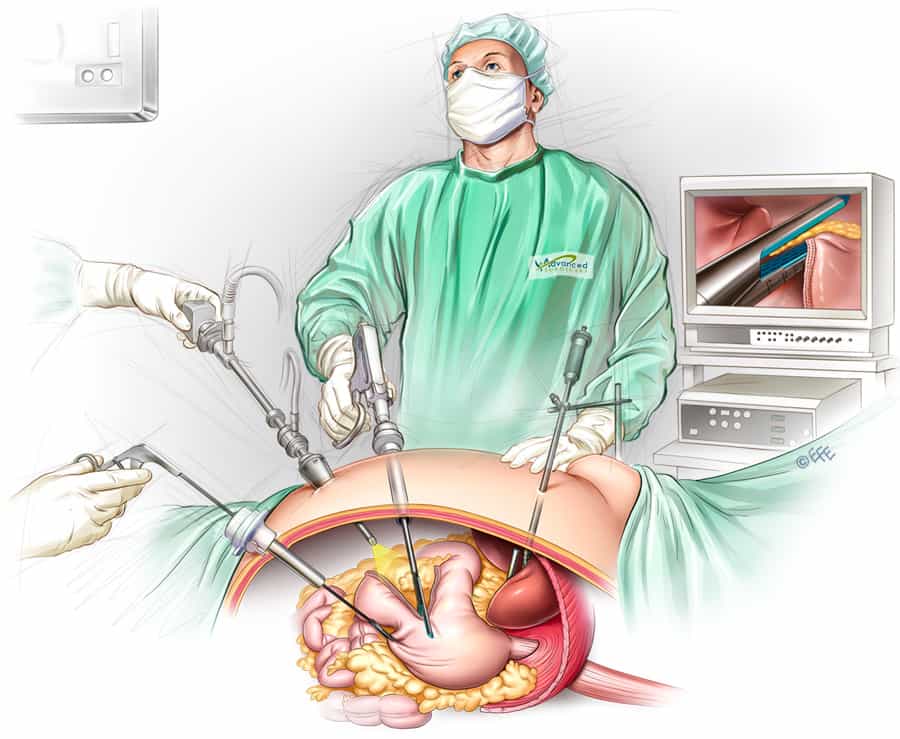What Is Bariatric Surgery?
So what is a bariatric medical procedure? First off, bariatric medical procedure is certainly not a particular sort. All things considered, it’s an umbrella term used to depict an activity that assists individuals with getting in shape by modifying their stomach-related frameworks somehow or another. The vast majority who are large are logically qualified applicants, and the technique is turning out to be more normal. In 2011, 158,000 grown-ups had a kind of bariatric medical procedure. In 2015, that number expanded to 196,000.
There are really four kinds of bariatric medical procedures, however, just three are generally utilized. They incorporate laparoscopic movable gastric band, normally alluded to as gastric band; gastric sleeve medical procedure, otherwise called sleeve gastrectomy; and gastric detour, or Roux-en-Y.
With a gastric band a medical procedure, a ring with an internal inflatable band is placed around the highest point of a patient’s stomach, making a little pocket. Basically, this decreases the size of the stomach, so less food is expected to feel full. Inside the band is an inflatable loaded up with a saline arrangement. A specialist can increment or diminish the size of the pocket’s opening by either infusing or eliminating the arrangement.
In gastric sleeve medical procedure, the vast majority of the stomach is really eliminated, encouraging it more straightforward to subsequent to eating also. What’s left behind is a little, banana-molded area.
Gastric detour a medical procedure is more mind-boggling, on the grounds that it really makes your stomach more modest while rerouting absorption. How it functions is that a specialist staples the stomach, making a pocket in the upper area that actually fills in as your stomach — you eat less on the grounds that you’re satisfied all the more rapidly.
Then, a specialist will cut the small digestive tract, joining it straightforwardly to the stomach pocket. At the point when you eat, food winds up really skirting the majority of the stomach and the upper small digestive system. This move implies your body ingests fewer calories from food since it’s not processing so a lot.
The piece of the stomach that has been skipped will then, at that point, be associated with the lower part of the small digestive tract. This skirted segment stays connected to the principal a piece of your stomach, permitting stomach-related juices too in any case arrive at it.
Who Is Bariatric Surgery For?
Obviously, bariatric medical procedure is anything but a low-upkeep, transitory fix. It’s a significant technique and interruption on the body, with both physical and close-to-home impacts. So who can go through it?
The common principles for being a contender for the bariatric medical procedure are that you have attempted to get more fit through diet and exercise, including a therapeutically directed program, and haven’t been effective, and furthermore can be categorized as one of the accompanying classes:
Your weight list, or BMI, is 40 or higher, which means outrageous stoutness.
You have a BMI in the 35 to 39.9 territory, which is viewed as large, yet you have something like another medical issue that is connected with your weight and could be improved with weight reduction, for example, type 2 diabetes or hypertension.
You’re something like 100 pounds over your ideal body weight.
These are the fundamental things a specialist would consider, however meeting one of those rules doesn’t mean you’ll consequently regard yourself as on a surgical table. There are different interesting points, like the accompanying:
Ailment: Your ailment pre-medical procedure assumes a part on whether you’re a decent possibility for a bariatric medical procedure. A clinical group will assess what dangers are implied, whether you’re on drugs, on the off chance that you drink or smoke, and you’re in general actual wellbeing.
Emotional well-being: Issues like substance misuse, gorging, and nervousness could meaningfully affect how well you can keep up with the medical advantages of a medical procedure.
Age: There is no age limit for bariatric medical procedures, however the dangers increment with age. For individuals under 18, the strategy stays disputable.
Upsides and downsides of Bariatric Surgery Types
Gastric Band: Using a band, the stomach’s size is decreased so you’ll feel full with less food
Geniuses:
The band can be changed or eliminated.
There’s no change to your digestion tracts.
It’s a short medical clinic stay.
You have the most minimal gamble of nutrient and supplement deficiency.
Cons:
You could lose less weight than with different sorts of medical procedures.
Follow-up visits to change the band happen every now and again. There’s likewise an opportunity your body will not adjust to the band.
In the long run, you could need to supplant or eliminate the band. As a matter of fact, a new report showed that 1 out of 5 more established gastric band patients will require further activities.
Gastric Sleeve
Professionals:
You’ll lose more than the gastric band.
There’s no change to your digestive organs.
No groups or unfamiliar articles in the body.
Short medical clinic stay.
Cons:
Can’t be turned around.
The higher gamble of medical procedure-related issues than gastric bands.
There’s an opportunity for nutrient deficiency.
Gastric Bypass
Experts:
More weight reduction than with the gastric band.
No unfamiliar items in the body.
Cons:
Hard to invert.
Most elevated possibility of nutrient deficiency.
The higher gamble of medical procedure-related issues than gastric bands.


